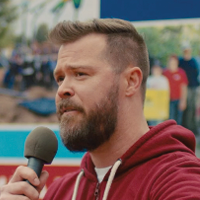
Annual RRVTA Banquet – February 15, 2025

Join us for the annual Raccoon River Valley Trail Association (RRVTA) Banquet on Saturday, February 15, 2025, at Country Lane Lodge in Adel. This year's event promises an exciting evening with a fantastic lineup of speakers and a wide variety of items in both the Silent and Live Auctions.
Tickets are available for purchase on the RRVTA website through Friday, February 14. Don’t miss this opportunity to support the trail and enjoy a memorable evening!
Speakers
Amy Zeigler – State of Iowa Tourism Manager
Luke Hoffman – Executive Director of the Iowa Bicycle Coalition
Curt Cable – Director of Dallas County Conservation
Live Auction Highlights
Skybox tickets for Iowa State football and Iowa Cubs baseball
Private tour of Terrace Hill
Swim party for 50 at the Dallas Center Aquatic Center
One-year membership to the YMCA of Greater Des Moines
Two bikes from Bike World
A professional bike fitting
Silent Auction Highlights:
The Silent Auction is now open and accepting bids until 7:30 PM on Saturday evening February 15. Below are a sampling of the items and a link to the auction.
Restaurant and retail gift certificates
Party at Mickey’s Irish Pub
Gift bundles from Bike Iowa and the Iowa Bicycle Coalition
Rail explorer’s ride
Overnight stays at a lodge and cabin
Tickets to an Iowa State women’s basketball game
PURCHASE RRVT APPAREL
100% of proceeds support RRVT

Costs of Trail Repairs

Late last year, we distributed a survey to gather feedback from trail cyclists to improve the trail experience, enhance amenities, and plan for future development. One of the key questions asked respondents for their recommendations to improve the RRVT. The top two suggestions were: improving the trail surface from Jefferson (specifically Winkleman Switch near Jefferson) to Yale, and adding public restrooms in trailhead towns that currently lack them, such as Adel, Linden, Panora, Jamaica, and Minburn. Next month, we will explore the costs of building public restrooms, but for now, we’ll focus on trail maintenance.
Bike trail maintenance is expensive. To illustrate, let’s look at two repair projects—one underway and one under consideration. In 2025, Dallas County plans to resurface nearly 3 miles of trail between Ortonville and Adel, replacing the asphalt surface and widening bridges at a cost of approximately $1.4 million—roughly $466,000 per mile.
A proposed project from Winkleman Switch to Yale spans 14 miles, with a projected cost of $5.4 million to replace the asphalt with cement. This breaks down to nearly $386,000 per mile.
The repair costs are significant and often exceed the financial capacity of many counties and cities to cover with their own revenues. The primary funding source for maintaining bike trails in Iowa is the State Recreational Trails Program (SRT), which typically has an annual budget of $3 million. In fiscal year 2025, the program received a one-time additional allocation of $3.5 million, bringing total funding to about $6.5 million. It’s still unclear whether this level will be sustained in FY2026 or revert to the usual $3 million. Even at the $6.5 million mark, that is still not enough money for trail maintenance across the state.
The state of Iowa and its counties and cities have built an impressive network of trails that attract thousands of out-of-state visitors each year. In fact, Iowa ranks among the top three states (along with Minnesota and Colorado) for the most miles of biking trails. But how do we maintain and expand this network?
Our association is collaborating with the Iowa Bicycle Coalition and others to address this issue. A key step was helping to fund the study Economic and Health Impact of Bicycling and Trails in Iowa, which was recently completed. The study shows that cycling now generates $1.4 billion for the state’s economy, up from $369 million in 2011, highlighting the significant economic impact of trails and cycling.
Addressing the costs of maintaining Iowa’s bike trails will require collaboration among all levels of government and the biking community to identify additional funding sources. This effort is crucial to bridging the substantial gap between current budgets and maintenance needs. Without sustainable funding solutions, the quality and safety of Iowa’s extensive trail network could deteriorate, limiting its benefits for residents and visitors alike.




